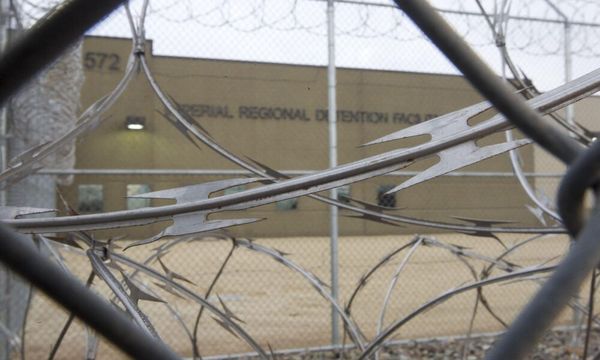WASHINGTON — The Supreme Court on Tuesday turned away Sen. Lindsey Graham's plea to be shielded from testifying before a Georgia grand jury looking into President Donald Trump's bid to overturn his 2020 election loss.
With no dissenting votes, the court refused an emergency appeal from the South Carolina Republican that was filed by former White House counsel Don McGahn. He argued the senator was "immune" from being questioned under the Constitution's "speech or debate" clause.
The court's action has the effect of upholding a subpoena issued by the grand jury in Fulton County, Georgia.
Justice Clarence Thomas had put the case on hold temporarily last month while the full court considered Graham's appeal.
Though Graham lost his emergency appeal, the court also appeared to validate part of his claim, possibly setting the stage for continued legal fighting.
The brief order noted that lower courts had "assumed that the informal investigative fact-finding that Graham assertedly engaged in constitutes legislative activity," which is protected under the law.
Graham admitted he made several phone calls to Brad Raffensperger, Georgia's secretary of state, but said they were "investigatory" and in line with his duties as chairman of the Senate Judiciary Committee.
Georgia election officials said Graham placed phone calls to them raising questions about the results of the November 2020 election, which Trump narrowly lost in Georgia. Trump was recorded in one call urging an election official to "find" enough votes to change the result.
Raffensperger said Graham suggested that the state could discard or invalidate large numbers of mail-in ballots from certain areas.
It is not clear why prosecutors are seeking Graham's testimony, but they indicated the senator was viewed as a witness, not the target of a criminal probe. They said he may be called to testify in mid-November.
The Constitution protects members of Congress from being punished and questioned for "any speech or debate in either house," and Graham maintained he was acting as a Senate investigator when he made the calls to the Georgia officials.
But the 11th Circuit Court in Atlanta disagreed in a 3-0 ruling and said the constitutional immunity did not extend that far.
The judges said the Constitution's limited immunity for lawmakers "protects the integrity of the legislative process by insuring the independence of individual legislators ... but not everything a member of Congress may regularly do is a legislative act within the protection of the speech and debate clause."
Two of the three appellate judges who turned away Graham's appeal were nominated by Trump and confirmed when Graham chaired the Senate Judiciary Committee.
The Supreme Court's order suggested Graham may still be able to challenge exactly what sort of information should be off-limits to the grand jury.
———






